
-
Find the right food for your petTake this quiz to see which food may be the best for your furry friend.Find the right food for your petTake this quiz to see which food may be the best for your furry friend.Featured products
 Small & Mini Mature Adult 7+ Dog Food
Small & Mini Mature Adult 7+ Dog FoodHill's Science Plan Small & Mini Breed Mature Adult Dog Food with Chicken is a complete pet food, specially formulated with ActivBiome+ Multi-Benefit Technology.
Tailored nutrition to support graceful ageing in small dogs. Specially made with a synergistic blend of nutrients for energy & vigor.Shop Now Perfect Digestion Large Breed Puppy Food
Perfect Digestion Large Breed Puppy FoodPrecisely balanced nutrition with Hill's ActivBiome+ prebiotic blend actively contributes to supporting digestive health and overall well-being to help your pet feel their best
Shop Now Perfect Digestion Small & Mini Adult Dog Food
Perfect Digestion Small & Mini Adult Dog FoodHill's Science Plan Perfect Digestion Small & Mini Breed Adult Dog Food with Chicken & Brown Rice supports ultimate digestive well-being & a healthy microbiome.
Shop NowFeatured products Hairball & Perfect Coat Adult Cat Food
Hairball & Perfect Coat Adult Cat FoodHill's Science Plan HAIRBALL & PERFECT COAT Adult cat food with Chicken is specially formulated to effectively help avoid hairball formation in adult cats while promoting a beautiful coat. Thanks to its mix of essential Omega-6 fatty acids, this food benefits the cat's skin and fur keeping them healthy and shiny. Our Advanced Fibre Technology helps reduce hairballs by naturally promoting their passage through the gut. This food is formulated with high-quality protein for a perfectly balanced, great-tasting recipe.
Shop Now Kitten Food
Kitten FoodHill's Science Plan Kitten Wet Cat Food Premium Chunks in Sauce with Chicken is a complete pet food for kittens and for pregnant or nursing cats
Shop Now Hypoallergenic Dry Cat Food
Hypoallergenic Dry Cat FoodHILL'S SCIENCE PLAN Hypoallergenic Adult cat food with egg & insect protein is a complete pet food for adult cat 1–6 years old. It's formulated for cats with delicate skin and stomach, with limited high quality novel protein sources & no grain.
Shop Now -
Dog
- Dog Tips & Articles
-
Health Category
- Weight
- Food & Environmental Sensitivities
- Urinary
- Digestive
- Joint
- Kidney
-
Life Stage
- Puppy Nutrition
- Adult Nutrition
- Senior Nutrition
Cat- Cat Tips & Articles
-
Health Category
- Weight
- Skin & Food Sensitivities
- Urinary
- Digestive
- Kidney
-
Life Stage
- Kitten Nutrition
- Adult Nutrition
Featured articles Pet Food Storage Tips
Pet Food Storage TipsWhere you store your cat and dog food can make a big difference in the quality and freshness once it is opened. Here are some common questions and recommendations for optimal storage for all of Hill’s dry and canned cat and dog food.
Read More The Right Diet For Your Pet
The Right Diet For Your PetLearn what to look for in healthy pet food & nutrition, including ingredients, quality of the manufacturer, your pet's age, and any special needs they have
Read More Understanding Your Pet's Microbiome
Understanding Your Pet's MicrobiomeLearn what a pet's microbiome is, how it contributes to your pet's gut & overall health, and why nutrition is important in maintaining healthy microbiomes.
Read More -
Food & environmental sensitivities in dogs
Food & environmental sensitivities in dogs
Does your dog have signs of food or environmental sensitivities?
Dry, itchy skin is just one of the many symptoms that may indicate your dog is experiencing a bigger problem brought on by environmental sensitivities. In rare cases, these may also be signs of food sensitivities in dogs. These signs can be long-term, recurring, and should be noted to your vet.
















What causes sensitivities in dogs?
One of the most difficult things on a dog’s path to recovery is determining what is causing their reactions. There are two main types of sensitivities that dogs face: food and environmental. The majority of sensitivities in dogs are from environmental causes, but certain ingredients in food may cause reactions as well.
What causes sensitivities in dogs?
One of the most difficult things on a dog’s path to recovery is determining what is causing their reactions. There are two main types of sensitivities that dogs face: food and environmental. The majority of sensitivities in dogs are from environmental causes, but certain ingredients in food may cause reactions as well.


Environmental sensitivities
Recurring signs of environmental sensitivities may be caused by grasses, pollen or biting insects. They can be addressed with a multimodal treatment including medication to help reduce the immediate symptoms and nutrition for effective long-term management.


Environmental sensitivities
Recurring signs of environmental sensitivities may be caused by grasses, pollen or biting insects. They can be addressed with a multimodal treatment including medication to help reduce the immediate symptoms and nutrition for effective long-term management.


Food sensitivities
Food sensitivities in dogs are actually very uncommon — in fact, only 10% of dogs experience food sensitivities! [1] Rarely, however, some dogs may experience reactions to certain ingredients, and they are identified through food elimination trials conducted by your veterinarian. A food elimination trial is a process of finding and removing the food ingredient causing skin issues or digestive upsets.


Food sensitivities
Food sensitivities in dogs are actually very uncommon — in fact, only 10% of dogs experience food sensitivities! [1] Rarely, however, some dogs may experience reactions to certain ingredients, and they are identified through food elimination trials conducted by your veterinarian. A food elimination trial is a process of finding and removing the food ingredient causing skin issues or digestive upsets.
Managing a dog’s sensitivities
Managing a dog’s sensitivities can be a challenging process, and your first step should be visiting your veterinarian. They will help you find the right combination of nutrition, medication, and/or topicals for your dog.
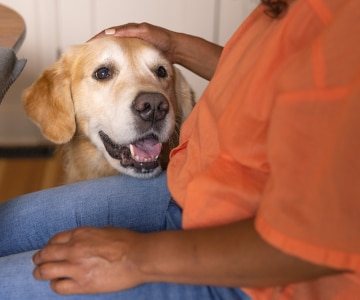

Living with a dog with food or environmental sensitivities can cause you both to be restless, but the road to improvement will require time, patience and trust in your vet. Remember — just like humans, every dog is unique, and the best solution will come from working with a professional to address your pet’s specific needs. Together, you’ll get on the right track to helping your best friend feel like their best self.


Clinical nutrition plays an important role in the long-term management of sensitivities in dogs. The right nutrition can promote healthy skin from within and help alleviate your dog’s signs. Even with treatment, some dogs may have recurring signs that will require adjustments along the way, and your veterinarian will be a helpful resource in managing your dog’s sensitivities.
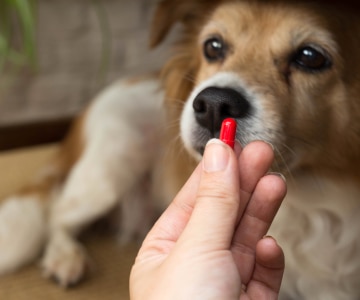

A vet may prescribe medication to help alleviate your dog’s signs of sensitivities. If you are wondering what you can give your dog for sensitivities, only give medication as recommended by your vet.
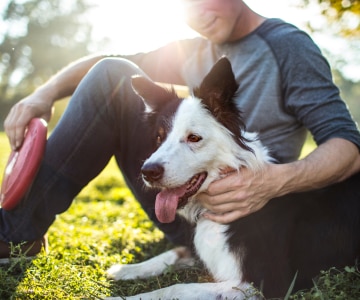

Topicals can be used for managing skin conditions in dogs. There are various deliveries for topicals like shampoos, lotions, sprays or ointments. Reach out to your veterinarian to ensure a specific topical is appropriate for your pet’s skin condition and life stage.
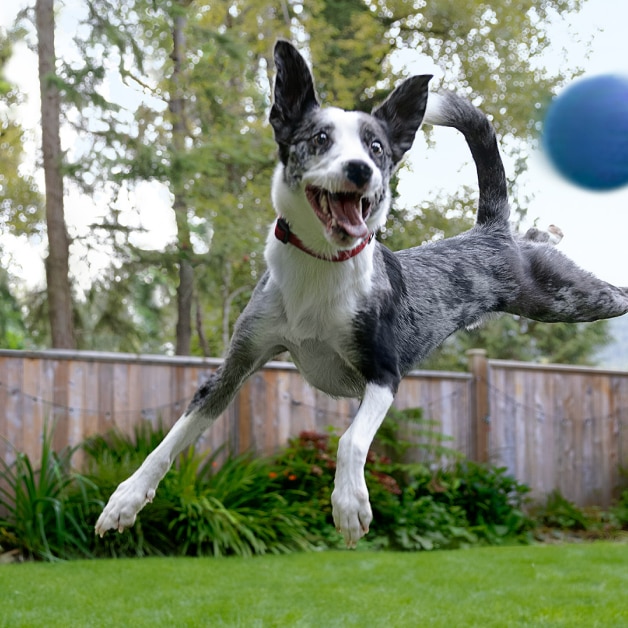

Understanding nutritional support for food and environmental sensitivities
You’ll want to ask your vet about a few things when it comes to the suitable dog food for food or environmental sensitivities. For food sensitivities, ask about clinical dog food with a single novel protein or hydrolysed protein that is unlikely to cause a reaction. For environmental sensitivities ask about nutrition that can nourish and help protect from environmental irritants.
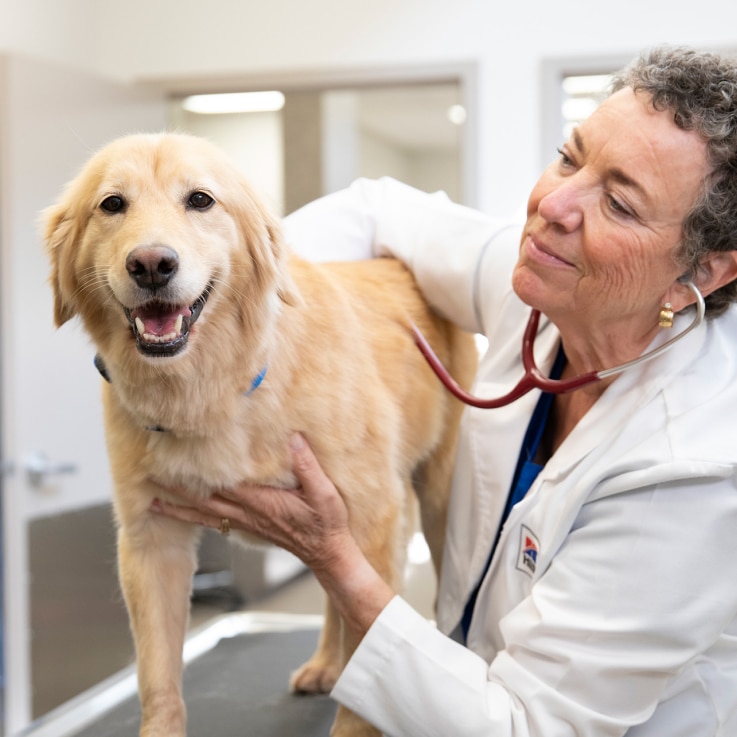

Time to see a veterinarian?
If you notice behaviour changes or sense something is off with your dog, it may be time to schedule a vet visit.
You also may want to ask your vet if clinical nutrition would be appropriate for your dog. Hill's Prescription Diet foods are developed by a team of Ph.D. nutritionists and veterinarians, and require a vet recommendation for purchase. Schedule an appointment so your vet can assess your pet's health and nutritional needs.
More products
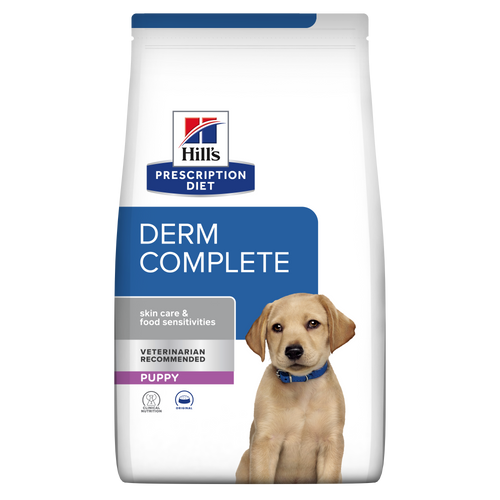
Nutrition specially formulated to support skin health and manage food and environmental sensitivities in puppies
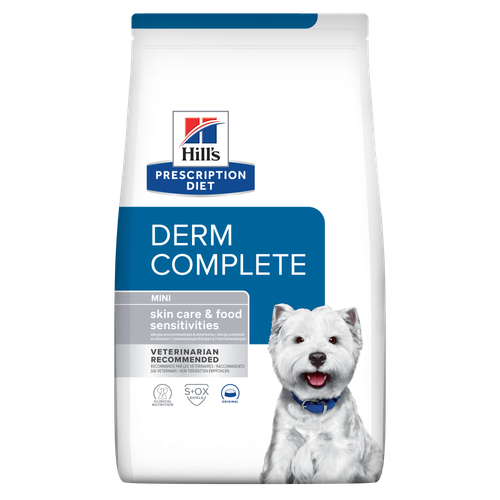
Clinical nutrition specially formulated to help manage environmental & food allergies in dogs

Clinically proven nutrition to help dogs naturally lose weight and improve mobility in as little as 21 days
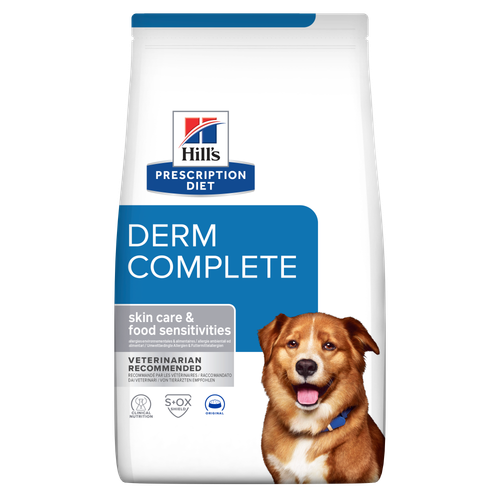
Clinical nutrition specially formulated to help manage environmental & food allergies in dogs

